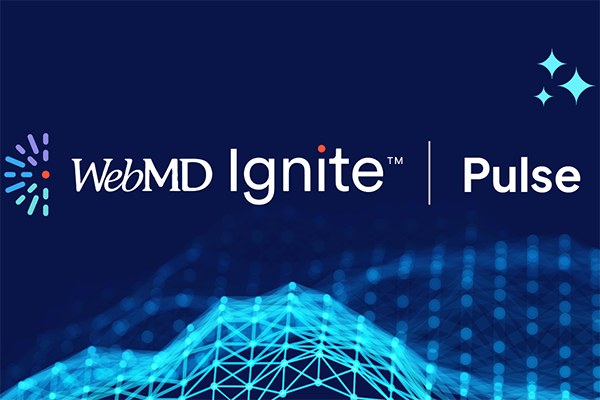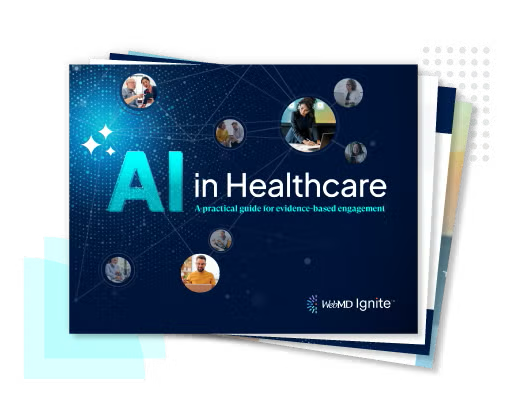Healthcare data management FAQ

Editor's Note: This blog was published prior to the transition to WebMD Ignite.
Frequently asked questions: Why is healthcare data management important?
Healthcare data management is the process of storing, protecting, and analyzing data pulled from diverse sources. Managing the wealth of available healthcare data allows health systems to create holistic views of patients, personalize treatments, improve communication, and enhance health outcomes.
Benefits of healthcare data management
- Create 360-degree views of consumers, patients, and households. Deploy personalized, guided interactions by integrating data from all available sources.
- Enhance patient engagement with predictive modeling and analysis based on healthcare data.
- Improve population health outcomes in specific geographic areas by tracking current health trends and predicting upcoming ones.
- Make informed, high-impact business decisions based on data insights.
- Understand physician activity and align them with the organization’s goals
- Common Questions About Healthcare Data Management
How can I unify my data management approach?
Organizations can manage their healthcare data by using technology like electronic health records (EHR) and healthcare CRMs (CRM), alongside existing data management tools like Revenue Cycle Management (RCM).
EHRs allow physicians to record and store patient information electronically, simplifying the medical recording process for authorized users. With this tool, healthcare organizations are able to consolidate, centralize, and securely access patient medical data.
A healthcare CRM has the ability to integrate, measure, analyze, and report on patient data from a variety of sources – such as EHRs, contact centers, social media, mHealth, and more – via a single consumer engagement data hub. With CRM technology in place, healthcare organizations obtain a 360-degree view of their patients that encompasses not only the patient lifecycle, but also includes consumer profiles, preferences, and behaviors.
By integrating insights from sources like EHRs into a CRM, health systems can create a holistic, unified view of patients on a single console.
What are the challenges of healthcare data management?
The amount of healthcare data available is expected to reach roughly 25,000 petabytes by 2020. Planning for and managing all that data can be an overwhelming, daunting task. Healthcare organizations need to transition their operations towards a data-driven mentality: Administrators and physicians must be diligent about collecting patient data, marketing departments must base their programs around data insights, and patients must be prompted to provide updated data whenever possible.
Making data management a priority requires involvement from all players in the healthcare industry – and requires a level of mastery and interoperability to find business-relevant insights that accelerate strategic decisions.
How to use healthcare data for predictive modeling?
By using health analytics to derive insights from patterns and correlations found in healthcare data, healthcare marketers can make predictions about which patients may have propensity toward certain conditions. This can be accomplished on a geographic level, without needing to target a specific service line. They can also predict how people will behave during their interactions with the healthcare organization based on past data. Creating predictive models based on analytical data can save healthcare marketers time and money, since they can refine their campaign targeting efforts for the most valuable prospects.
What are the best practices for healthcare data management?
Making effective use of technology is essential to successful healthcare data management. A healthcare CRM collects, stores, evaluates, and generates reports of patient data, alleviating the burden of trying to manage this data manually. Couple an CRM with a healthcare business intelligence tool, and your team can integrate data from a variety of sources (such as consumer, patient, physician, and claims) to identify top market growth opportunities.
Additionally, mHealth tools and patient portals make it easier for patients to interact with healthcare organizations: Patients love the personalized, convenient approach to their medical data that these solutions provide. By providing these types of popular resources for their patients, healthcare organizations increase their opportunities to gather patient data.
How can healthcare data improve physician alignment?
Access to physician and claims data helps healthcare organizations discover actionable insights and how to effectively execute them. Gathering, managing, and analyzing physician data provides a view into physician behavior; healthcare organizations can analyze claims data to discover physician loyalties based on geographic location.
Health systems engage in a more meaningful dialogue with physicians to identify and resolve issues, and enable relationships based on respect and trust. These initiatives help organizations achieve successful physician alignment, increase volumes and referral rates, and realize incremental revenues.




